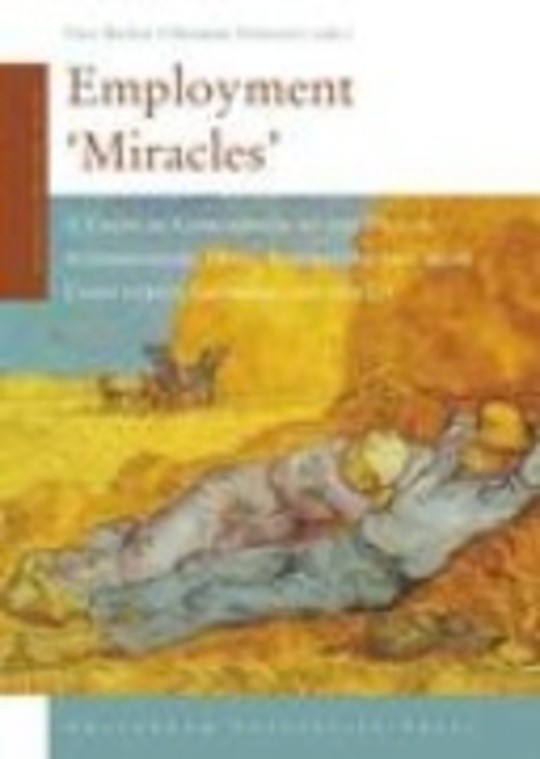
Employment 'miracles'
Free
Description
Contents
Reviews
Language
English
ISBN
Unknown
Table of Contents
Preface
1 Introduction:Miracles,Mirages and Markets
Introduction
Luck, pluck and stuck in the employment miracles
Globalisation and the miracles
A specific (corporatist) variety of capitalism?
What the chapters say
2 The Dutch Model:Magic in a Flat Landscape?
Introduction
Labour market performance
Economic performance
Social outcomes
Policies, the model and the results
Conclusion: luck, pluck or stuck?
3 Employment and Unemployment in Denmark and Sweden:Success or Failure for the Universal Welfare Model?
Introduction
Employment and unemployment: what happened?
Unemployment and employment policies
Policies and outcome – Is there a link?
Conclusions
4 The Evolution of the Finnish Model in the 1990s : From Depression to High-Tech Boom
Introduction
The background of the Finnish miracle: the economic crisis of the 1990s
Political response to the crisis
The recovery and the Finnish ‘miracle’
Structural issues:welfare state and labour market institutions
The Nordic welfare state: Good to economic growth?
Labour market institutions and corporatism
Conclusion
5 The Swiss Miracle:Low growth and high employment
Introduction
Corporatism in a fragmented polity
A coordinated market economy?
Recent developments
Economic and labour market development
Disentangling the Swiss ‘miracle’
An expanding welfare system
Conclusion
6 Recasting the Story of Ireland’s Miracle:Policy,Politics or Profit?
The constituents of economic growth and development
Possible explanations
The costs: sustainability?
The significance of the Irish case
7 The Australian Miracle:Luck,Pluck or Being Stuck Down Under?
Introduction
Exports and the current account balance
Employment and collective bargaining
Fiscal balance
Conclusion
8 Last Year’s Model? Reflections on the American Model of Employment Growth
Introduction
An American success story 185
The American model
Limits to the liberal market economy model
Conclusion
9 The German Contrast.On Bad Comparisons,Special Circumstances,Luck and Policies That Turned Out to Be Wrong
‘Germany isn’t working’
The German economy in comparison
A bad employment record because of labour market and welfare rigidities?
Accidental circumstances: housing bubble versus unification
On strong German regions
Prospects and possible lessons from the ‘model cases’
10 Conclusion:The Importance of Lucky Circumstances,and Still the Liberal-Social Democratic Divide
In sum
Recent developments and prospects
What is to be learned?
‘Competitive Corporatism’?
Still the liberal-social democratic divide
Contributors
Index
Bibliography
The book hasn't received reviews yet.









